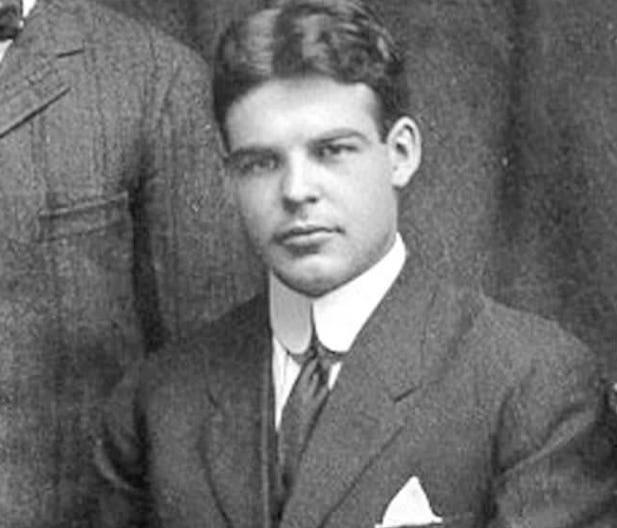A reflection on regret
"After this Job opened his mouth, and cursed his day... Let the day perish wherein I was born"
Above: William W. Borden (1887–1913).
“What have I done! What have I done!” She wrung her hands, and crushed her white hair, and returned to this cry over and over again. “What have I done!” - Charles Dickens, Great Expectations (Chapter 49)
No reserves. No retreats. No regrets. These are the words that William Borden, an evangelical Protestant, is said to have penned in the back of his Bible shortly before his tragic death in 1913 at the age of twenty-five. A particular book, Borden of Yale, circulated among my brothers when we were young. We were captivated by the story it told: the life of Borden, a wealthy Yale and Princeton Seminary graduate who set out to become a missionary to Muslims. His life was cut short by meningitis in Cairo where he was studying Islam and Arabic.
As young boys, we admired Borden for his athleticism, intelligence, and diligence, and because he possessed a generally magnanimous spirit. He loved God, cared for the poor, and thoroughly committed himself to the salvation of the lost. He had every advantage at his disposal—elite education, wealth, a prestigious pedigree—but relinquished it all to pursue what he thought was right.
No reserves. No retreats. No regrets. Those three phrases resonated with my brothers and me. We transcribed them in our journals and recited them as personal mantras. They were a source of motivation and a challenge. The final phrase in particular—“no regrets”—resonates especially with men.
When recounting a period of his life that was marked by regrettable decisions which had serious consequences for himself and others, an acquaintance once said to me, “well, it's all in the past now. No regrets.” He said it flatly as if it was a badge of honor—as if genuine men harbor no regrets. To regret at all is to be ensnared by the past, even a sign of weakness. The late Charles Krauthammer, in a letter before his passing, wrote that he would exit “this life with no regrets.”1
How can any man look back at his life from its end and say that he has no regrets? It seems to me that this “no regrets” mantra can be understood in one of three ways—one passive and virtuous, another active and virtuous, and the last one active and vicious.
Firstly, a man may have no regrets in the sense that he accepts every thing that has happened to him—all the good along with every suffering and injustice—as part of God’s will (permissive or otherwise). This is a resignation to—and union with—the will of God by which we receive every event that God allows, and endeavor to will them as God has willed them and because God has willed them. This kind of acceptance may seem too radical to bear. But as Dom John Chapman writes in his Spiritual Letters:
there is [an] interior peace, which consists in simply willing what God wills, even though it seems to be just the unpleasant distraction and exteriorizing which we [suppose] to be bad for [us]. The only thing is to accept all the circumstances of [our lives], and all the affects they seem to produce upon [us], and use them as a means of annihilating [our] own [wills].2
We may thus have no regrets in the sense that we have learned to will (first by accepting) whatever God has willed. This is tied to the the theological virtue of hope:
looking forward with absolute confidence, in the expectation that God will give us everything which is necessary to bring us to the end he has in view for us… [Hope thus] brings us through all trials and difficulties to our last end.3
Secondly, a man may have no regrets about non-moral endeavors that were unsuccessful. Here I have in mind things like assuming a risk, attempting to create or build something, investing in a venture that doesn’t go according to plan, etc. We learn our biggest lessons through failure and in some sense it is right to look upon past failures with some sense of gratitude—failures without which other goods could have never come about.
Finally, however, many of our actions are morally wrong and thus regrettable in the sense that something is wrong with us if we do not regret them. Insofar as a man has no regrets about those actions, he is not virtuous but vicious.
I do not know Krauthammer's intentions. Nor can I confirm whether Borden actually inscribed those three phrases in the back of his Bible or what he meant by them if he did. One would hope that these men had no regrets only in the first and second senses provided. May the same be true of the rest of us.
Krauthammer, Charles. “A Note to Readers.” The Washington Post, 8 June 2018. www.washingtonpost.com.
Chapman, John, OSB, Spiritual Letters (London: Burns & Oates, 2003), 33.
Ibid., 27.


